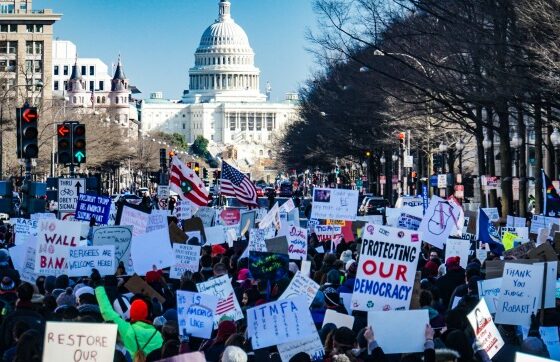Midterm Elections Cause Major Shifts and more…

The 2022 midterm elections put matters of reproductive rights, gay marriage, immigration, and race relations on the ballot.
December 9, 2022
Election day this year held the fate of many congressional and gubernatorial seats across the country, and Americans showed up to rock the vote. Farhad Manjoo, a New York Times Opinion columnist, stated, “If you’re worried about the health of our democracy, it seems pretty good that we’ve had big turnout — implying that both sides think their votes actually matter.” The results of this strong participation will mean significant changes within Congress and our nation.
The Republican Party has won the majority in the House of Representatives, currently standing at 221 seats. In the House, this election has been good to them, but it still was not the “red wave” they were anticipating. Larry Hogan, Republican Governor of Maryland, told CNN’s State of the Union, “This should have been a huge red [Republican] wave . . . More than 70 percent of people thought the country was going in the wrong direction. And yet we still didn’t perform.” While this may be true, Republicans clenched the majority in the House, with one remaining uncalled race in Colorado likely to result in their favor. This could spell disaster for the Biden administration because with a red house comes the worry that the rest of his term could result in dead proposals.
On the other hand, the Democrats have taken the Senate with a 51-49 majority. This majority means that President Biden’s judicial and federal appointments for the rest of his term should pass easily. Democrats currently have 49 seats, and 2 independents that will most likely caucus with them, while Republicans hold 49 seats. The Senate race in Georgia between incumbent Democrat Raphael Warnock and Republican Herschel Walker was considered too close to call, and the runoff election scheduled for December 6 resulted in reelection for Warnock. Millbrook senior Caden Carlton was asked if he thought Walker had a true shot at the office. He relayed, “With the way that the Republican party goes, yes. But should he have had a chance? Probably not, no.” Carlton explained further saying, “When I got home from work I was watching his [Herschel Walkers] concession speech, and he was just rambling on about how he was super happy to be there, and how God is good, all of that. Come to find out after the fact, he was running for office in Georgia and he doesn’t even live there, which I thought was pretty weird.”
As for governors across the country, significant flips and landmarks occurred. Incumbents like Michigan’s Gretchen Whitmer (D), Texas’ Greg Abbott (R), Maines Janet Mills (D), and Florida’s very own Ron DeSantis (R) all won additional terms. Many eyes are on DeSantis as he broke records in historically blue parts of Florida, a sign that he could be an option for a presidential candidate in the 2024 elections. Since his win, Donald Trump has announced that he plans to run for the office again. As Trump is notoriously feral when taking down opponents, the question becomes less of if DeSantis will choose to run, and more of whether he dares? In Arkansas, Republican Sarah Huckabee Sanders, President Trump’s former press secretary, became the first female governor of the state. In Massachusetts, Democrat Maura Healey became the first governor in American history to be openly lesbian. Lastly, Democrat Wes Moore was elected as the first black governor of Maryland.
So aside from all that is happening at the national scale, what was this election like for North Carolina? Republican Ted Budd won the Senate seat, and the 14 US House seats up for grabs were split evenly between Democrats and Republicans. This means that as a whole there is no clear majority with North Carolinians evenly divided in terms of both beliefs and voting direction. Senior Samantha Hauge commented on her front-row seat to watch democracy in action: “I got to experience the election from a unique standpoint as I was a volunteer with the Wake Board of Elections and got to work a precinct on Election Day. Some of my duties on Election Day included voter registration and crowd control. Being that I was in the position to see all the voters who would come to vote through registration, it was evident to me that the voters came from anywhere and everywhere in order to make sure their voices were heard.”
According to the NC State Board of Elections, close to four million North Carolinians voted in these midterm elections. Voters were allowed to vote in several different formats. Hague elaborated, “Being a citizen of the United States means having the right to vote. In many cases, citizens don’t exercise their rights, but I was proud to see that in my precinct we actually exceeded the number of projected voters whether it be by absentee ballot, in-person voting, or curbside voting. With so many heavy topics up for debate in this election, people knew it was important to exercise their voting rights and express their opinions in order to create a positive change for their city, state, and country.”











